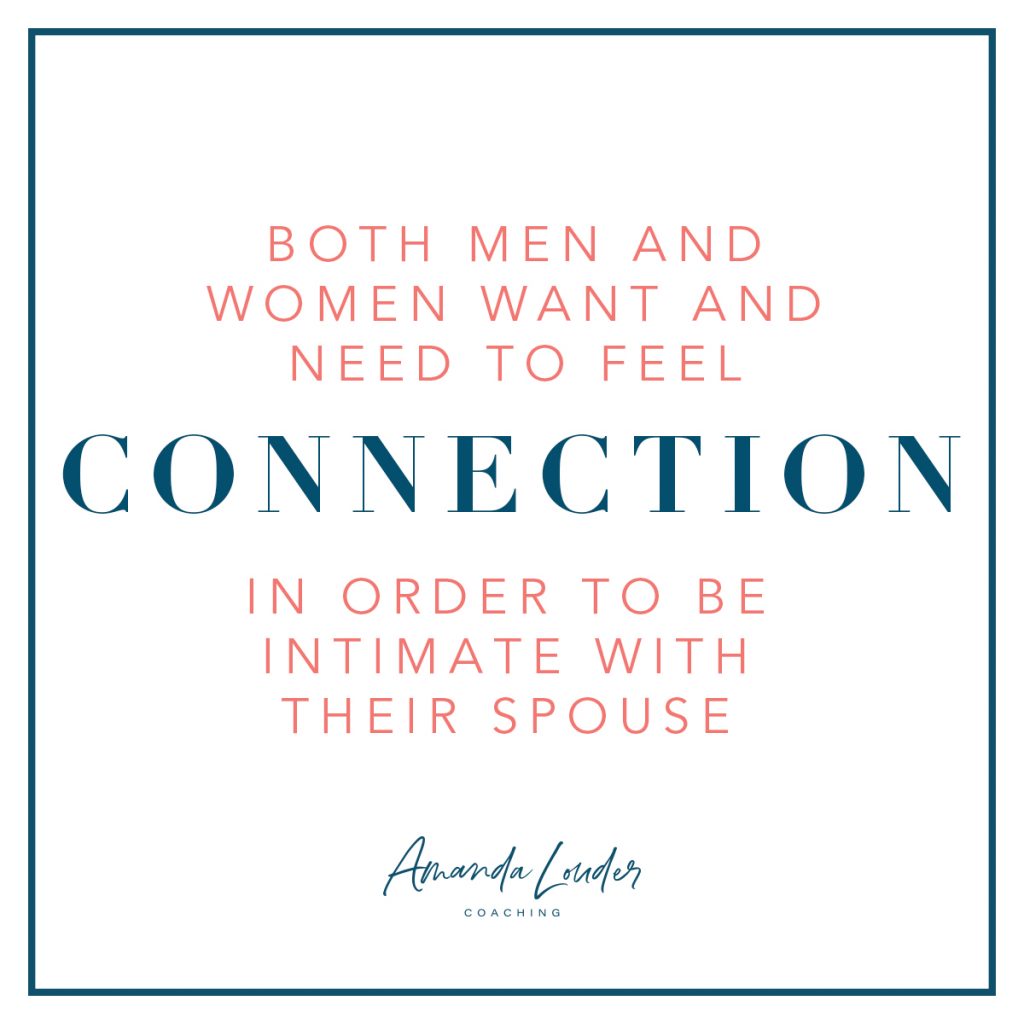
In American and Conservative Christian culture, we are often taught things about men’s sexuality that are myths. Actually, they are really outright lies. In this episode, we go through 3 myths about a man’s sexuality in the hopes that as we learn what is really true about men and their sexuality that we can have a more intimate relationship with our partners.




Show Notes:
Show Summary:
What are the myths, or really the lies, that we were taught about men’s sexuality? In American and Conservative Christian culture, I believe that we were taught many myths about men’s sexuality that not only hurts us as women, but hurts our relationships and hurts our husbands. I’d like to discuss some of those myths, and also offer some truth’s today. And in doing so, I hope that you can start to see how these myths have helped to shape your beliefs about sex, your husband, and hopefully they can start to change so that you can heal your relationship.
Myth #1: Men only have one thing on their minds
While this may be true for some men and for some periods of their life, this is not true for all men and for all periods of their life. Yes, studies show that compared to women, on average, men think about sex more, have stronger libidos, masturbate more, initiate more, and continue to crave sex more, even after the honeymoon period, and they are more likely to judge the health of their relationships based on the frequency and quality of the sex. But, I recently read a study by Michael Castleman, a sex therapist, that shows that after 30-years old, men’s desire for sex becomes much more nuanced, more complex, and actually very similar to a woman’s.
Especially after 30-years old, men’s sexuality is a lot like a woman’s in that it depends more on context. After 30, men are usually pretty focused on their careers and have families, so sex isn’t forefront on their minds as much as it was in earlier years. In sharing further myths in this podcast, I think you’ll understand that context and nuance a little bit more.
Myth #2: Men lust or desire and women should be desirable
This myth causes problems for both men and women, but we will stick to focusing on men here. For many men, they feel the cultural expectation to “be the man” by openly showing their desire for the woman they love. And because of this cultural expectation and our often “wrong” interpretations of the scriptures, we see this as a bad thing. If you haven’t listened to Episode 163, where I discuss these wrong interpretations, I highly suggest you do. Lusting after or desiring your spouse is actually a good thing. But, men also want to be desired. In the same study I referenced before, feeling desired was the number one top turn on by 73% of the men. They said that feeling desired was critical to their libidos. They love it when their partners initiate (just like we discussed in Episode 169). So the lie here is that it’s the man’s job to desire and we aren’t taking into account that they also want to be desired. They want to be chosen by their spouse as much as they choose them.
In conjunction with this, I’m betting you can guess what was one of the biggest turn-offs for men; being rejected. Almost 60% of men surveyed cited turn-downs as their top turn-off. Yes, men desire their wife, but they also wanted to be desired. They want a whole-hearted yes. An enthusiastic yes. Not “I guess I should since it’s been a while” yes. Or a “it’s my duty as your wife to do this” yes. They want a wife who wants them as much as they want her.
This study also shows that men who are repeatedly turned down, eventually lose interest. Not because they don’t love their wife, but because it’s easier to shut down their desires, to try not to think about it anymore, than to experience the constant pain and rejection of their wife not wanting them. And while I understand that so many times it’s not a personal rejection when women turn down men, it often feels very personal. So there is definitely work to do on both sides.
Myth #3: Women need emotional connection beforehand and men get connection through sex
Now this one is partially true but not completely. In that same study, more than half of the men (53%) said that in order for them to become sexually aroused, they had to feel an emotional connection with their partner, a connection best made by self-revealing conversations and shared laughter. So, we think that men don’t need that emotional connection beforehand, but this study actually shows that they do. But, their ways of emotionally connecting may not look the same as a woman’s. So we really need to look at what our husbands ARE doing to emotionally connect, instead of what we think they should be doing. Most men want those connecting conversations, but the content of those conversations might look different than the content a woman wants.
Renowned therapist Esther Perel says (paraphrased) that historically, women were not allowed to want or talk about sex, so women developed language around emotions to express need for connection. On the flip side, men were not allowed to want or talk about emotions, so they developed language around sex to express need for connection.
What it comes down to is that both men and women want and need to feel connection in order to be intimate with their spouse. How they go about that thought may be different. In the study, the men said the most arousing couple conversations had to do with lovemaking. Men wanted to talk about sex. Recently one of my clients said that for years, her husband has tried to talk to her the next day about their sexual encounters the night before. He wanted to be open and vulnerable and discuss what he liked, what worked, and what didn’t with her. But for the 20-plus years of their marriage, having these kinds of conversations did not make her feel more connected to him, it made her embarrassed and ashamed. She was ok doing it and even talking about it in the moment, but was not ok talking about it the next day or later. But when she realized, through my program, that she didn’t need to be embarrassed about these conversations, that they were normal and good and connecting between her and her husband, she finally gave herself permission to have them. This has resulted in a much more connected relationship overall and more intimacy in their marriage.
In the study 57% of the men said they could not separate their libidos from how they felt about their relationship’s emotional closeness – or distance. If they felt like they weren’t on the same page as their partner, if they were disagreeing, if they weren’t connecting, they weren’t into it. But, in my experience I have found that many times women hold on to the hurt of the disagreement much longer than the man. So while the husband may be ready to connect again physically as a way to continue healing from a disagreement, often the wife isn’t ready as soon as he is.
Conclusion
So what are the conclusions from this study? That men (especially as they age) value feeling desired and view sex as an extension of emotional communication and intimacy – just like most women. Also, that not all men are the same. That many of the things that we have been cultured to believe about men and sexuality is wrong.
So, I want to encourage you to think about what you have been taught about men and sexuality either directly or indirectly and question whether it is true for your husband or your marriage. What could you be missing because you have been looking at your spouse through this distorted lens? I would encourage you to sit down with him and ask him about his thoughts and feeling about sex and your sexual relationship. Quit making assumptions that certain things are true.
I think as women we often make assumptions about our husbands and what they are thinking and feeling. We think we know them so well. But what if you are completely wrong about that? What if you are making assumptions about him, about his sexuality that just aren’t true?
This is how we build an intimate marriage. By seeing our spouse as they truly are and not just who we think they are. And also being willing to reveal our true selves.
As always, if you need help with this, please sign up for a free consultation or my Embrace You! Group Coaching program, where I can help you have these hard conversations, help you make the changes you want to make, so that you can have the marriage and the intimate relationship you and your husband both dreamed about.




You must be referring to sexually healthy men with regards to this episode
I’m talking about the majority of men, yes!